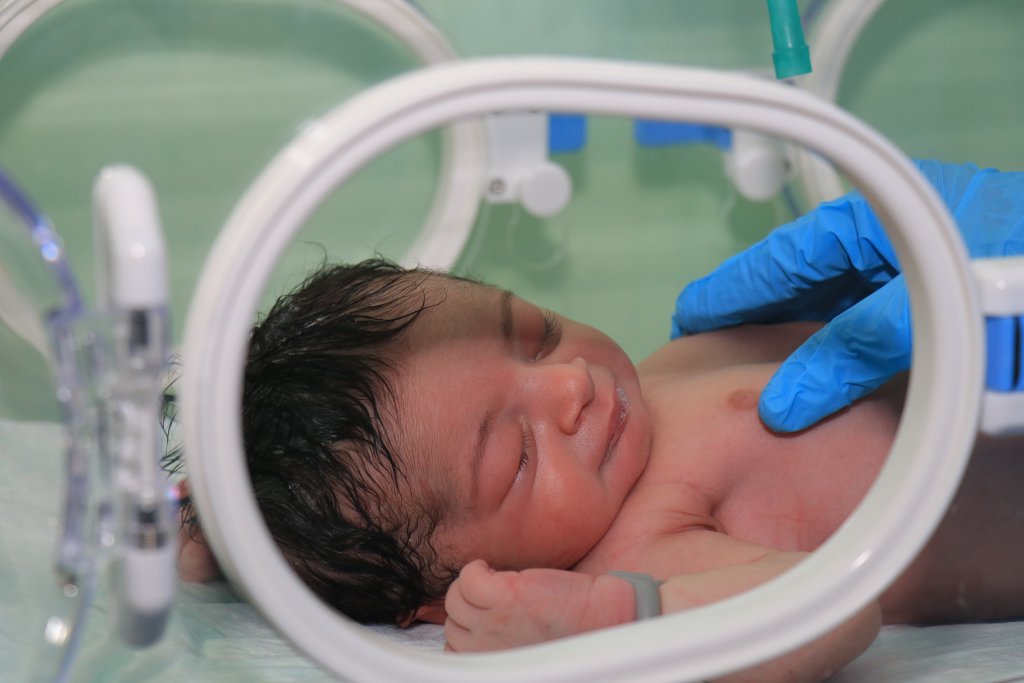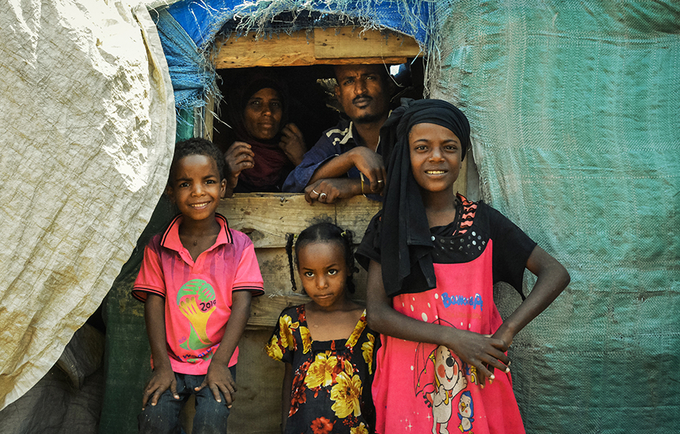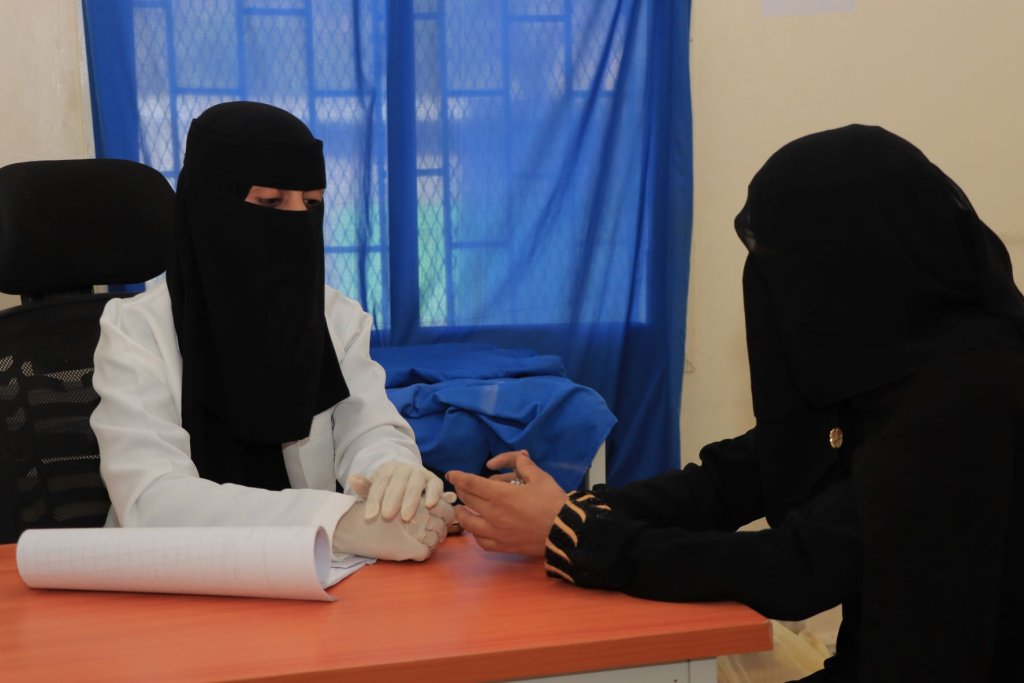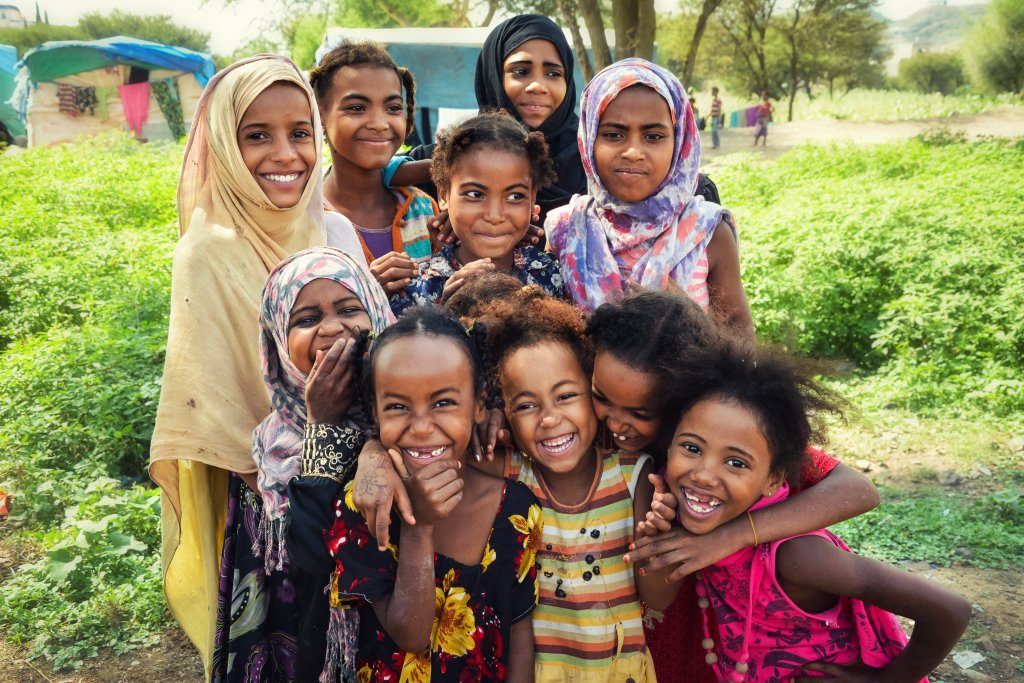No Mother Left Behind: UNFPA’s Work in Yemen

In Yemen, UNFPA estimates that one woman and six newborns die every two hours of childbirth complications. But thanks to you, we reach new moms like Samia, Aisha, and Malikah, with lifesaving care so they can survive childbirth, even in the world’s worst humanitarian crisis. These women have witnessed years of conflict, chronic displacement, looming famine, a collapsing economy, a broken health care system and overlapping outbreaks of diseases like COVID-19, cholera, and malaria. But your support has helped them survive it all.
Here are their stories:
Samia

At 19, Samia was considered a young mother and faced increased risks for pregnancy and childbirth complications, like obstructed labor. And in Yemen, the risk of complications is even greater as women have inconsistent, if any, access to health care due to prolonged conflict and inadequate nutrition has left some women too weak to safely carry a pregnancy.
Her family had been displaced from their home due to the conflict and her husband had lost his job, making it impossible for Samia to travel to a health center to give birth. Tragically, when she went into labor, Samia experienced obstructed labor. As Samia’s family rushed her to UNFPA’s Al-Rahida clinic, Samia went into a coma. Her father described Samia as a “lifeless corpse.” At the clinic, doctors stabilized Samia’s condition and, as Samia woke up from her coma, they prepared her to give birth.
The birth went smoothly until Samia’s baby began to suffocate. A midwife performed CPR and saved the second life of the day. In the birth recovery room, Samia held her daughter and received a mama kit. UNFPA mama kits contain everything a woman needs to care for herself and her baby after giving birth in a humanitarian crisis like Yemen. Samia told the doctors and midwives through tears, “You have done a lot [for] us. We will not be able to return this favor to you [but] we will inform all needed people of these free services that the hospital provides, because people in our village are suffering a lot as the area is far from the city, and their conditions are very, very difficult.”
Aisha

Aisha is from Taizz. The city used to be the cultural capital of Yemen, but now is on the frontlines of conflict. Aisha, partially because of financial concerns and partially because of tradition, had planned to give birth at home. But when she went into labor, Aisha knew something was wrong. She began to have intense pain and asked her husband to get help. Aisha’s local midwife was unavailable and the closest clinic was over an hour away.
Luckily, Aisha’s husband found a car to take them to the clinic, where UNFPA staff assessed her condition. Just hours later, Aisha was holding her newborn in her arms, telling the staff, “I am grateful for providing such services to us and I am happy for the mama kit you have given me. I will inform all women in our village it is safe to give birth in centers and hospitals.”
Malikah

Conflict took many things from Malikah and her family. They were displaced from their home. Malikah’s husband lost his job. Her four children no longer had a school to attend. And, when Malikah became pregnant with her fifth child, the conflict took away the health services she needed to have a healthy pregnancy. As Malikah neared her due date, her husband became increasingly worried that they would not be able to afford to take her to a health center for childbirth. But Malikah stayed hopeful. She told her husband, “Don’t worry, Allah will help us and we will figure it out.”
It was then that a family friend told them about a UNFPA clinic where Malikah could give birth for free. It was there that Malikah safely gave birth to her baby. In the midst of conflict, displacement, and uncertainty, UNFPA is there, no matter what, providing lifesaving sexual and reproductive health care.
You Make Sure No Woman or Girls is Left Behind

But without your support, this wouldn’t be possible. UNFPA is committed to reaching every woman and girl in Yemen with the lifesaving care she needs. But last year, we received only 50% of the humanitarian funding we needed to make this happen.
Samia, Aisha, and Malikah were lucky. They got the care they needed to survive pregnancy and childbirth in the world’s worst humanitarian crisis. But with your support, we can turn pregnancy into a moment of joy, not a game of chance. Don’t leave women and girls behind. Donate today.
-Dana Kirkegaard